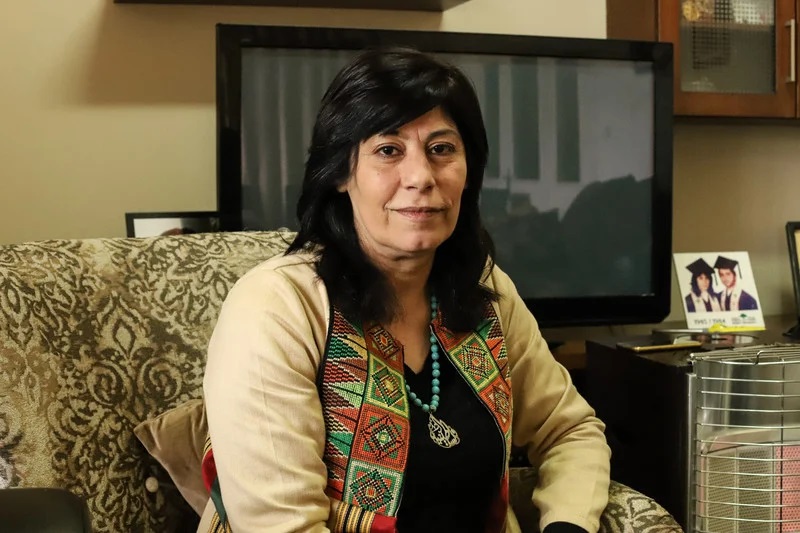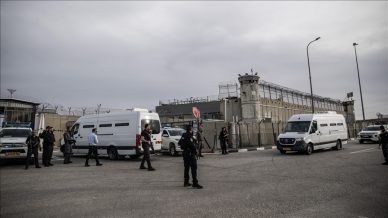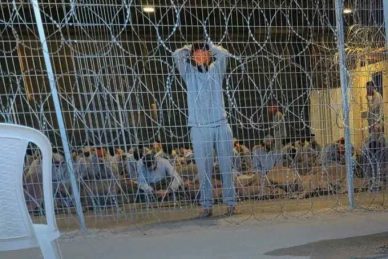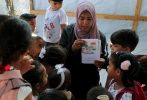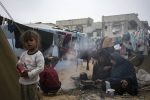RAMALLAH, (PIC)
The Palestinian Prisoners’ Society and the Commission of Detainees and Ex-Detainees Affairs reported that the Israeli prison administration has been isolating the prisoner and human rights activist Khalida Jarrar in a solitary cell at Ramla prison for 16 days under extremely harsh and difficult conditions.
The former leader in the Popular Front told the Commission’s lawyer that she is facing an unbearable, tragic situation, saying, “I die every day; the cell is like a small closed box without air. There is only a toilet in the cell and a small window above it, which was closed the day after I was transferred.”
Jarrar added, “They have left me no breathing space; even the so-called ‘ventilation holes’ in the cell door have been closed. There is only a small opening next to which I sit most of the time to breathe. I suffocate in my cell and wait for the hours to pass, hoping to catch a few oxygen particles to survive.”
At 61 years old, Jarrar suffers from several health issues, with the extreme heat worsening her isolation experience. “In short, I am inside an oven at the highest setting; I cannot sleep because of the high temperature.”
She pointed out that the prison administration has not only isolated her but also deliberately cut off the water supply to her cell. “When I request to fill a water bottle to drink, they bring it to me at least four hours later. As for going outside to the prison yard, I was allowed to do so only once after eight days of isolation. They also deliberately delay my meager meals for hours.”
The Commission of Detainees and Ex-Detainees Affairs and the Palestinian Prisoners’ Society confirmed that the continued isolation of Jarrar is a “deliberate crime committed by the prison administration against her,” especially since they refused to disclose the duration of her isolation or its reasons.
The two human rights organizations held the Israeli authorities fully responsible for the life and fate of prisoner Khalida Jarrar, emphasizing that her isolation “is part of the systematic retaliatory measures against Palestinian prisoners, which the prison administration has implemented at an unprecedented level and intensity since the beginning of the genocidal war on Gaza.”
They added in a joint statement on Wednesday that the retaliatory action against Jarrar “is merely an extension of a targeting process she has faced over the past years, with her repeated administrative detention being a prominent aspect of that.”
Israeli forces re-arrested Jarrar on December 26, 2023, from her home in Ramallah, and she was subjected to administrative detention. Until her isolation at Ramla prison, Jarrar had been held in Damon prison with dozens of Palestinian female prisoners. Since her arrest, she, like all other prisoners, has faced harsh and difficult detention conditions, along with systematic abuse and crimes, as documented by numerous human rights reports.
Jarrar is one of 87 female prisoners in Israeli jails, the majority of whom are held in Damon prison. Among them are a pregnant prisoner, mothers, sisters of martyrs and prisoners, former female prisoners, students, journalists, activists, and lawyers.
Since the start of the genocidal war on Gaza on October 7, 2023, the Israeli occupation has intensified its arrest operations, bringing the number of detainees in prisons to nearly 10,000 Palestinians. These mass arrests have been accompanied by a policy of lockdown.
This policy includes closing prison rooms and complete isolation, shutting prisons to family visitors, and canceling the ability to bring detainees to court sessions via video conference. As a result, these measures have contributed to a lack of knowledge about what is happening inside the prisons.
Additionally, the Israeli prison administration has revoked all the rights that prisoners have earned over the years, canceled the “canteen” and the ability to purchase food items, confiscated their belongings, cut off electricity, removed electrical appliances, reduced showering opportunities, and imposed other restrictions.

